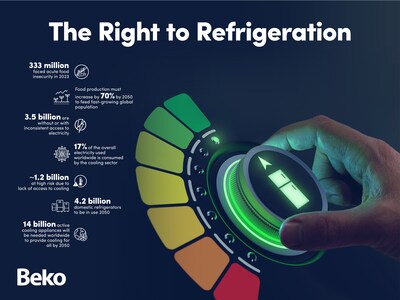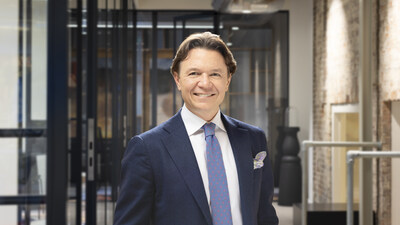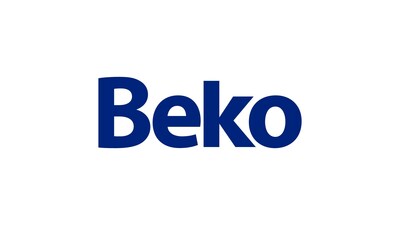Beko Report Highlights the Role of Refrigeration in World Food Day's 2024 Vision of Securing The Right to Foods
- This year's World Food Day theme,'Right to Foods for a Better Life and a Better Future', emphasizes the need for global access to food, with refrigeration playing a vital yet often overlooked role.
- The Right to Refrigeration report reveals that lack of reliable refrigeration is a major challenge, contributing to food spoilage and impacting millions, particularly in underdeveloped regions.
- Refrigeration systems account for over 17% of global electricity use and 8% of carbon emissions, stressing the need for a transition to more sustainable, energy-efficient solutions.
- The report calls for collaboration between public and private sectors to develop affordable refrigeration technologies, enforce international agreements, and reduce environmental impact.
ISTANBUL,Oct. 15, 2024/PRNewswire/ -- Beko, a global leader in home appliances, released a report which looks at the key role of refrigeration in improving access to food worldwide. Developed by academics from theUniversity of Birminghamspecialized in cold economy and sustainable cooling, the report,Without Access to Fundamental Services: The Right to Refrigerationfinds that access to reliable refrigeration remains a critical challenge, especially in underdeveloped regions, where millions face food spoilage due to a lack of reliable refrigeration.

World Food Day, an international day commemorating the founding of the United Nations Food and Agriculture Organization (FAO), highlights the urgent need for global action against hunger and food insecurity. Taking place onOctober 16, this year's theme is'Right to Foods for a Better Life and a Better Future', emphasizing the importance of ensuring global access to food, where refrigeration plays a critical role, however, which is often overlooked.
According to Beko's report, in 2023, 333 million people experienced acute food insecurity, a worrying increase of more than 200,000 people when compared to pre-pandemic levels. Currently, over 1.2 billion rural and urban poor populations are considered high risk due to lack of access to cooling solutions. This problem is further exacerbated by the rapid growth of the world's population where, according to the United Nations FAO, food production should increase 70% by 2050 to meet global demand. According to the authors of the study, lack of effective refrigeration contributes to the loss of 526 tonnes of food produced annually, enough to feed one billion people.
Refrigeration and its impact to climate change
The study finds that current refrigeration systems have a significant impact on the environment. The cooling sector accounts for over 17% of global electricity consumption and for 8% of global carbon emissions, which is more than three times the global carbon emissions of the aviation industry. Furthermore, inefficient technologies have been proved to contribute to climate change. According to the study, globally, 1.9 billion refrigeration units were in use in 2022, with 165 million sold that year. These figures are expected to rise, reaching 2.5 billion units by 2030 and 3.8 billion by 2050. However, to fulfill the refrigeration needs of the entire global population by 2050, 4.2 billion domestic refrigerators would be required.
In this context, transitioning to energy-efficient, low-impact refrigeration is extremely important to be able to address both food insecurity and the environmental challenges posed by global refrigeration. The study concludes that solving these interconnected issues will require a genuine collaboration between the public and private sectors. On one hand, the private sector should focus on developing affordable, energy-efficient refrigeration solutions, lobbying for stricter sector regulations, and building consumer trust. However, policymakers should also work on developing and enforcing international agreements, creating National Cooling Action Plans, and setting up environmentally friendly disposal solutions for outdated refrigeration units.
"Refrigeration is not just a convenience; it is essential in today's world for combating food insecurity," said Hakan Bulgurlu, CEO of Beko,"By addressing the refrigeration gap, we can significantly reduce food waste and improve food availability for communities in need. Our commitment to innovative, sustainable technologies ensures we reduce environmental impact while providing these much-needed solutions."
ABOUT BEKO
Beko is an international home appliance company with55,000 employeesworldwide and global operations through its subsidiaries in58 countries and 46 production facilities in 14 countries(i.e. Türkiye, UK,Italy,Romania,Slovakia,Poland,South Africa,Russia,Pakistan,India,Bangladesh,Thailand,ChinaandEgypt).Bekohas22 brandsowned or used with a limited license (Arçelik, Beko, Whirlpool*, Grundig, Hotpoint, Arctic, Ariston*, Leisure, Indesit, Blomberg, Defy, Dawlance, Hitachi*, Voltas Beko, Singer*, ElektraBregenz, Flavel, Bauknecht, Privileg, Altus, Ignis, Polar).Bekobecame the largest white goods company inEuropewith its market share (based on volumes) and reached a consolidated turnover of8 billion Eurosin 2023. Beko's31 R&D and Design Centers& Officesacross the globe are home to over 2,300 researchers and hold more than 3,500 international registered patent applications to date. For the 5th consecutive year, the highest score in the DHP Household Durables industry (based on the results dated 27 October 2023) in theDow Jones Sustainability Indexof the S&P Global Corporate Sustainability Assessment was achieved.** Beko's vision is'Respecting the World, Respected Worldwide.'
*Licensee limited to certain jurisdictions.
**The data presented belongs to Arçelik A.Ş., a parent company of Beko.


SOURCE Beko



